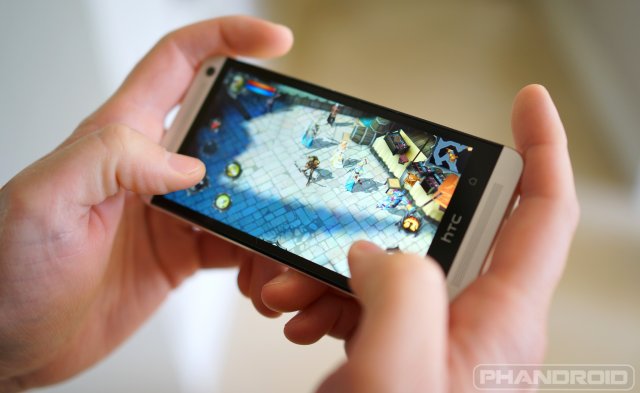
Report: Apple and Google battling for games exclusivity
It’d be incredibly naive of us to believe that neither Google or Apple would be courting developers with lucrative kickbacks for exclusivity. We saw as much during the great Plants vs Zombies 2 debacle of 2013, where iPhone users enjoyed the game for a good two months before it stumbled its way over to Android. While Popcap, EA and Apple would refuse to make a comment or vehemently deny that any of this happened, it wouldn’t be hard to believe such a deal took place.
Things might be getting even more heated soon, though, with the Wall Street Journal reporting that Google and Apple are ramping up efforts to sway developers to launch games exclusively for their respective platforms.
Suggested benefits for developers would likely mean the game being prominently featured at the forefront of the App Store or Google Play, as well as a one-way fast pass to the top of whatever categories they belong in. And for really big titles? A bit of cash probably wouldn’t be too far out of the question, as well.
The claims don’t sound unsubstantiated, with top developer Gameloft’s head of sales and marketing suggesting they’ve discussed deals like this with Apple in the past. “We haven’t found the case where it makes sense for us,” said Gonzague de Vallois.
Indeed, a big publisher like Gameloft probably doesn’t need the help of Apple or Google to get their games front and center. For smaller independent developers, though, it’d be a hard offer to pass up.
This topic was one of taboo that incited controversy last year, but the reality is that times are changing. Major players like Amazon (and even smaller ones like OUYA) are coming in with set-top boxes and tablets, and aren’t above buying up or paying off studios to develop exclusive games for their platforms. Apple and Google would be fools to let any opportunity to gain exclusive content of their own pass by.
Exclusivity has been a staple trait the console gaming scene since its inception, and with mobile gaming taking the huge strides it’s taken in the past few years it’s not hard to believe we’re just reliving history. Time will tell if any of these developers decide to bite on offers from either side, but don’t be too shocked if (or when) it eventually happens.

